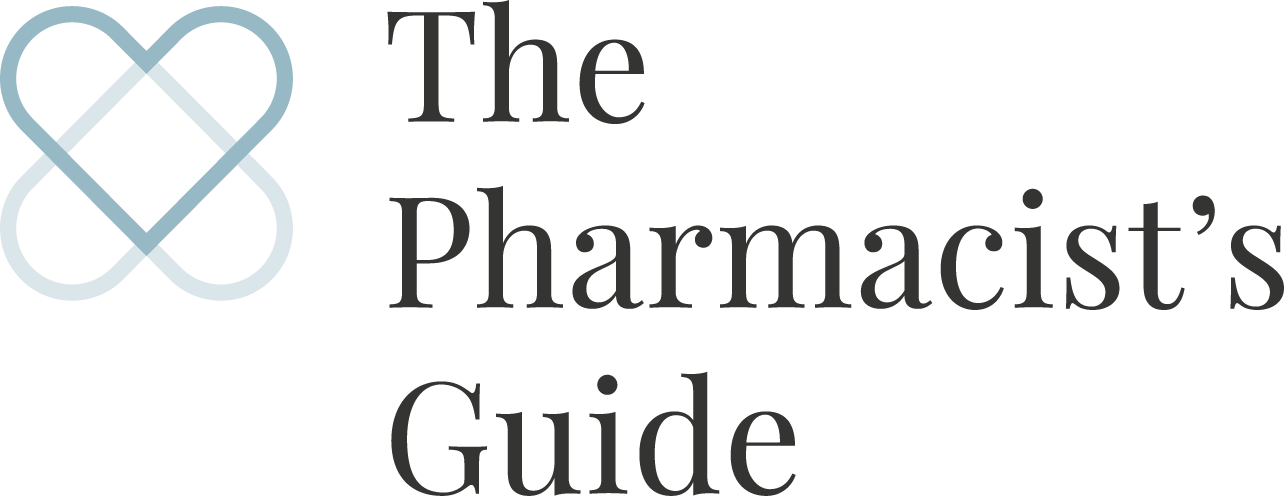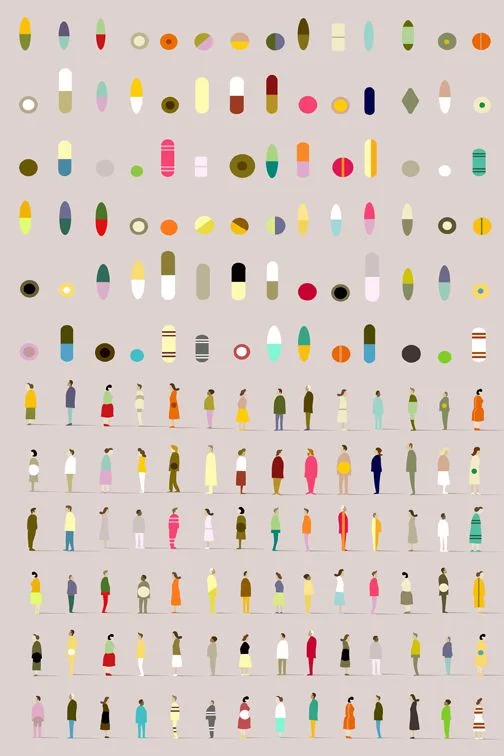FINANCE FRIDAY: WHY DO MY PRESCRIPTIONS COST SO MUCH?
Illustration credit: Adam Simpson
Americans spent $424 billion on drugs in 2015. Why do our prescription drugs cost so much? No one likes going to the pharmacy and finding out that their newly prescribed "miracle" drug or medication they were just prescribed to help their blood pressure, diabetes, or skin disorder costs several hundred dollars a month, or that their insurance company won't cover it, or that their copay is still a lot (what happened to my $10/$20 copay)?
As we saw with the prevent epipen and Daraprim price hike, price gouging is illegal and sometimes Congress has to get involved. So what is the cause and can we do anything about it?
1. Patent protection
A study in the Journal of the American Medical Association (JAMA) concluded that basically the high costs of prescription drugs can be attributed to the approach the United States has taken. In the U.S., drug manufacturers have government protected monopolies.
The study found that in 2013, the per capita spending in the U.S. Was $858 compared to $400 in 19 other industrialized countries. Prescription drug spending comprises ~17% of personal health care services.
2. Research and development
R&D has historically been claimed as the reason for high drug prices. That may be the case sometimes, but the JAMA study concluded that many of the R&D costs were covered by federal grants or venture capital firms and that R&D only accounts for 10% of pharmaceutical company overall expense.
3. Insurance companies
Insurance companies usually deal in four tiers. The first tier is your lowest co-pay (let's say $10) and is usually a generic (atorvastatin, metformin, etc...). The second tier represents a preferred brand for which there is no available generic ($20). The third tier represents a non-preferred brand name ($40) and the fourth tier represents special high cost drugs (let's say $100).
Or often, after a deductible has been met, your insurance company may have you pay a percentage of the total cost.
Or the pharmacist may tell you that your medication requires a prior authorization and they've called the doctor. What does that mean? Well, your insurance company is kicking back the claim and saying that there are other preferred medications that they want you to try. The doctor has to call or fax them information saying that you've failed other therapy or give a good reason why something else won't work for you. It's extra paperwork for the physician, more time delay for you, and a way for insurance companies to control costs.
A lot goes into a pharmacy and insurance companies contracted price, etc.... and will discuss that in a later post.
4. Your drug is brand new
This is similar to #2 and #3. New drugs cost more because they are new, often the only drug in a class so there is no competition, and there is no generic yet.
5. Generics and biosimilars
Generic medications and biosimilars (generic for a biologic) cost less and arrive on the market after patent protection has expired for a brand name drug. Generics are meant to spur competition and decrease overall drug costs. And they do, especially when multiple drugs are in the marketplace. However, legal and business strategies can make it takes longer for generics to get to market.
Conclusion
Overall, drug companies are major corporations, thus they are running a business. They do innovate and produce new drugs, but incentives are often in place. As a consumer, talk to your doctor or pharmacist if you are having trouble covering something you have to have. Often, a pharmaceutical company will have samples, vouchers, or coupon programs in place.
Pharmacies like Publix offer some antibiotics (and Singulair!) for free. They can do this because they will recoup the cost in your other prescriptions.
So, for the most part, new drugs will cost more, drugs with generics will cost less.
#whydomyprescriptionscostsomuch #prescriptiondrugcost #pharmacist #jama #pharmacy #financefriday #highcostofdrugs

